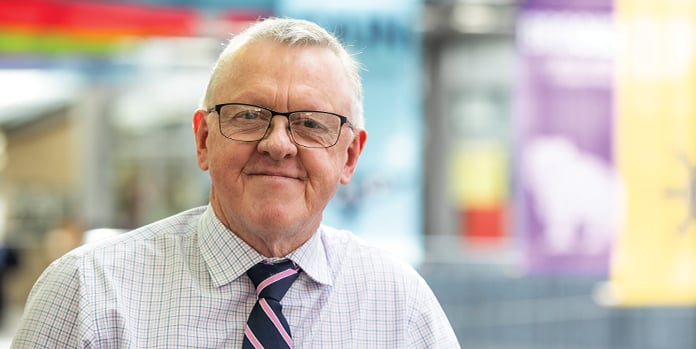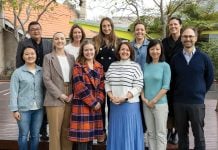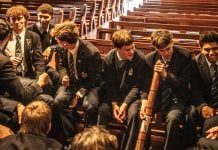“Melbourne Grammar School has offered me many opportunities. I wanted to honour those I seized but also provide opportunities for others when I could,” says Mark Coleman, who will soon retire from Melbourne Grammar School. Mark joined the staff in 2001 and in the 24 years since he says that he has “tried to be useful and find ways to serve the School where I can.”
Creating a collective vision
Mark’s roles at Wadhurst have included Science Coordinator, Head of Cuming House, and Head of Teaching and Learning. “One of the most important things I’ve learned in these roles is that I don’t know everything, and that it’s important to actually listen,” he says.
He found his seven years as Head of Cuming House most rewarding, implementing practices that have, so far, stood the test of time. “I wanted to encourage a greater sense of House identity, beyond sporting competitions, so that’s why I introduced House assemblies and other activities,” Mark explains. “Having students run the assemblies became an important opportunity for them to experience leadership and become recognisable role models for other students.”
Less public but an example of his eye to do things better, he suggested that the Heads of House all worked in the same office. “For a start it was easier for students to find one of us, and when students came with a question it was easier for them to find someone who could answer it.” This seems a simple enough change, but it was an indication of his capacity to recognise and implement incremental improvements.
As Wadhurst’s Head of Teaching and Learning, Mark also helped introduce changes that have transformed assessment. “We built reflective learning into our reporting systems,” he explains. “We recognised that students don’t learn from grades at the end of semester – they learn from timely feedback, giving them time to adjust their learning behaviours.”
Moving on from “a second home”
Alongside these changes to Wadhurst’s House system and assessment, Mark was also instrumental in establishing the interdisciplinary Argo program, which introduced Year 7 students to themes such as identity, conflict, and change. “Argo gave students a broader perspective and built their sense of themselves as part of a community,” Mark says. “That program was something I’ve been particularly proud of.”
Having spent over two decades at our School, Mark describes his office as “a second home” and it has been a rare privilege to share most of that time with the same people – “my immediate school family”.
“I have had a lot of satisfaction out of teaching students how to research, think, and argue,” he says. “Schools are places where everyone should learn. I’m going to miss working with young people and with colleagues who have made me a better teacher.”



